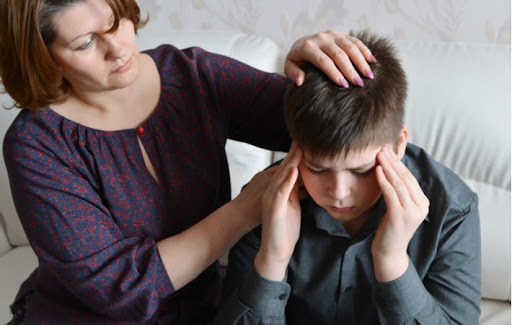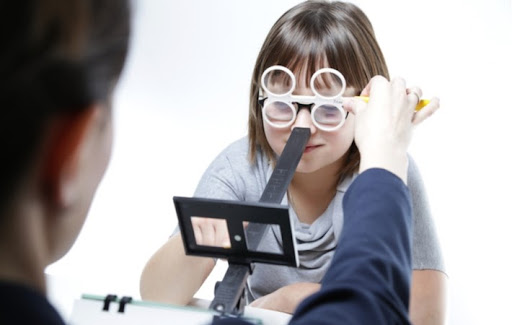Did you know that having perfect, or near-perfect, vision acuity may not mean perfect sight? Our visual system also depends on our brain to interpret images, and sometimes this brain-eye connection is not working properly. This can happen for a variety of reasons, and that’s where vision therapy comes in.
Vision therapy is an effective treatment for these types of visual issues, which can take place at developing ages or even as an adult. Our practice prides itself in offering vision therapy solutions for any age, and we’re ready to accommodate this treatment to your specific visual needs. Book an appointment to address vision issues for you or your family.
So What Is Vision Therapy?
Your eyes are only a part of your complex visual system. The other underlying parts have to do with your brain. Specifically, how your brain interprets the images your eyes receive. With vision therapy, we can treat both of these parts. From amblyopia, and strabismus, to visual underdevelopment caused by autism, vision therapy can help.
Vision therapy entails a series of exercises specifically designed to your visual system’s particular needs. These exercises aim to improve the quality and efficiency of your vision, helping you improve in daily tasks such as reading.
Therapy activities help by correcting issues you might have in receiving or processing visual information. These issues may arise at any age and for various reasons, from development issues to head trauma. Although they’re particularly prevalent in children with visual development deficiencies.
What Should I Expect From Vision Therapy?
The first step is getting a comprehensive eye exam. We’ll assess your eye’s specific needs and design a series of exercises tailored to your vision. These exercises may involve both at-home and supervised in-office therapy over a set period of time. We’ll schedule visits to keep up with your progress and make any necessary adjustments.
What Can Vision Therapy Help With
Vision Therapy is a non-invasive treatment option that can strengthen the bond between your eyes and brain. It can help with many eye-related conditions, such as:
- Amblyopia
- Strabismus
- Visual Impairment Acquired Through Brain Injury
- Vision Related Learning Problems

How to Know if I Need Vision Therapy?
If you or a family member display any of these signs, vision therapy might prove helpful:
- Eyestrain
- Headache
- Eye-tracking difficulties, like jumping lines of text
- Having to constantly re-read lines of text because of lack of concentration
If this seems all too familiar, a comprehensive eye exam may be in order. With a precise assessment of your ocular health, we’ll determine the best course of action and see if vision therapy is the best option for you.
Vision Therapy For Children
Visual health is particularly important in children, as undiagnosed vision problems can affect your child’s learning and development. But spotting vision problems in your children can prove difficult. They might not ever complain about their vision, because they don’t know what it’s supposed to be like.
This is why we recommend you bring your child for their first eye exam at 6 months old. After that, they should have another eye exam between ages 2 and 5. Then, they should have annual eye exams, as any eye-related issues may severely hamper their learning. These exams can detect conditions like amblyopia (lazy eye), and strabismus (crossed eyes) early on. Your child may benefit greatly from vision therapy as a course of treatment in this case.
But vision issues can seemingly come out of the blue, especially in children. So pay attention to your child’s body signs, like if they squint too much while reading or if they’re constantly complaining about headaches. This can all be a sign of undiagnosed vision problems. Keep up with your child’s ocular health, book an appointment and don’t let visual impairment impair their development.
Vision Therapy Could Be The Treatment For Your Family
Vision therapy has the potential to help correct many vision problems, in adults and children alike. Optometrists can help with binocular vision issues like strabismus, vision-related learning difficulties, autism, and even sports vision training. Vision therapy is a non-invasive treatment option for your entire family. Book an appointment today to help make sure that you and your family have healthy vision.




